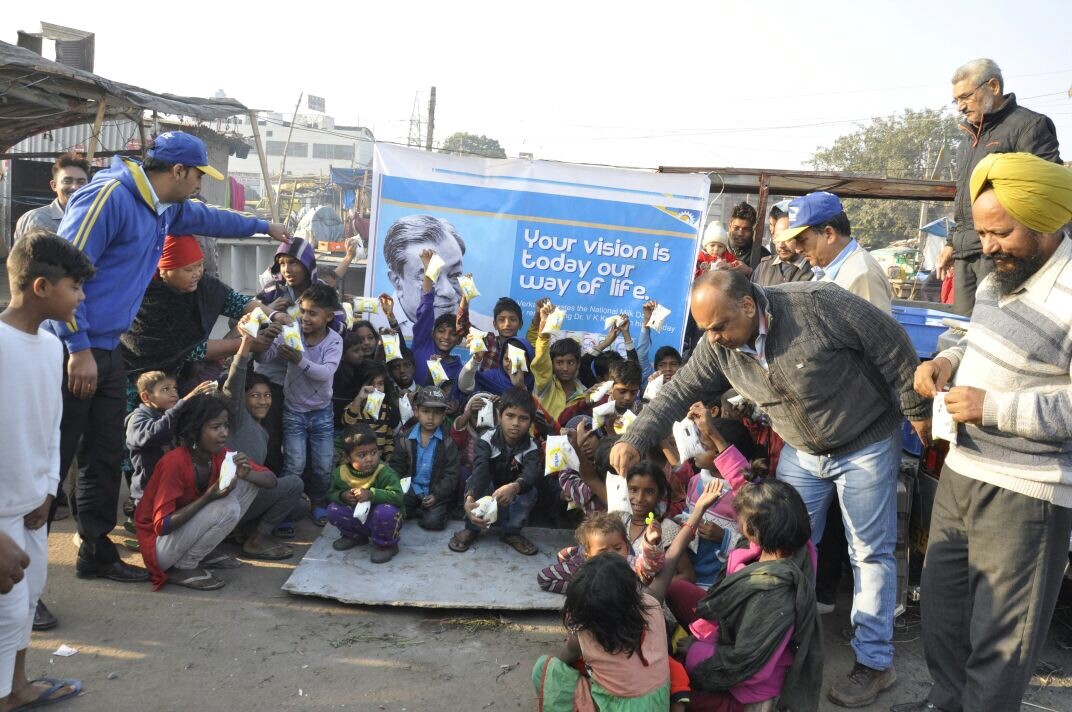Verka celebrated the India Milk Day by distributing milk to the not so fortunate, living in the slum areas. Indian Milk Day is celebrated on November 26, to mark the birth anniversary of Dr. Verghese Kurien, Father of India’s White Revolution November.

Speaking about the activity, Mr. Manjit Brar, MD, MILKFED, said, “Dr. Verghese Kurien transformed the Indian dairy sector with his persistent efforts. The white revolution also transformed the lives of dairy farmers especially the women. We pay tributes to Dr. Kurien and reaffirm our commitment to the welfare of the society. “
Verka stands by the values of giving back to the society, the same is reflected in the Verka’s method of functioning where about 75% of the profits go back to the dairy farmers. The activity conducted today is also about making a difference in the lives of less privileged ones. Milk is unique because it is, by nature, one of the most nutritionally complete foods. It provides essential nutrients: proteins, vitamin B2 and B12 and minerals such as calcium. We need these nutrients every day because they are an essential source of fuel, growth and protection for our bodies. Milk and milk products are recommended as a healthy food source for everybody, young and old.
“Milk consumption is a way of life for Indians. Following the footsteps of Dr. Dr. Verghese Kuries, MILKFED has brought in a milk revolution in Punjab. We have taken various initiatives to empower the dairy farmers of Punjab by providing them the best know how, technologies and fair price for the milk. We are also completely committed to the health of our consumers by ensuring best quality milk to them. ”
Verghese Kurien was an Indian social entrepreneur known as the ‘Father of the White Revolution’ for Operation flood – the world’s largest agricultural development programme. Known as Milkman of India, Dr. Kurien was the founder Chairman of the National Dairy Development Board (NDDB) from 1965 to 1998, the Gujarat Co-operative Milk Marketing Federation Ltd. (GCMMF), from 1973 to 2006 and the Institute of Rural Management (IRMA) from 1979 to 2006, which are owned, managed by farmers and run by professionals.






